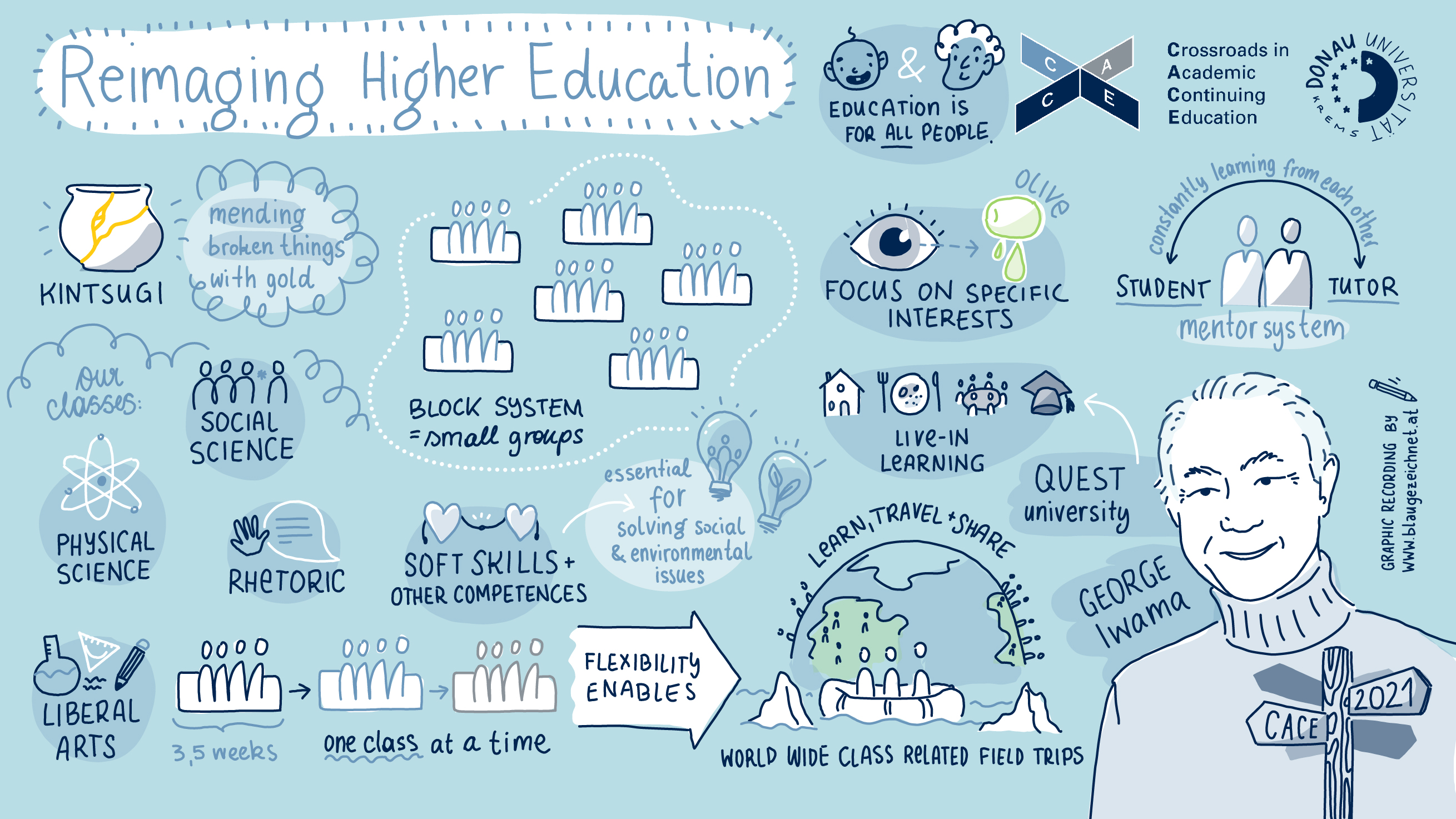blaugezeichnet.2024-09-13-08-28-54.jpg)
George Iwama, President and Vice-Chancellor of Quest University Canada, talked about rethinking higher education and new ways of delivering it. In his presentation, he explained Quest University’s innovative approach to designing its study programmes. Founded in 2007, Quest University is Canada’s first private, secular and not-for-profit liberal arts and sciences university.
The first major difference between Quest University’s study programme and other study programmes is that it is organised according to a block schedule. Instead of having multiple parallel courses, students focus on just one course at a time. Classes are small, and each block takes 17 to 18 days. After each block, students have a four-day break before the next block starts. Students spend an average of three hours per day in classes and five to six hours on out-of-class work at home, Iwama explained, admitting that this way of studying was quite intense and challenging. Focusing on a single course, however, comes with a number of benefits. It is, for example, possible to go on field trips without students missing other courses. The block system also allows athletes or models to complete their studies while pursuing their careers.
All courses at Quest University Canada equip their students with what are referred to as “transferable skills”. These skills are useful in many different professions and include critical thinking, interdisciplinary problem solving or analytical skills, self-direction, collaboration, ethical understanding and global perspectives. Young people from all over the world come to study at Quest University. At the outset, when they take up their studies, they are all quite different. By the time they graduate, they have become similar to one another in many respects. “They communicate and think in a manner that is compassionate, clear and focused,” Iwama explained. To him, these young people seem impressively mature.
In his presentation, George Iwama also explained how the study programme is organised. Students complete a two-year “foundation programme”, followed by a two-year “concentration programme”. By the end of the foundation programme, students are expected to have come up with a research question that they will then investigate in the course of the concentration programme. During the second half of their studies, students may freely choose their courses according to their individual interests. There are, however, courses that every student has to take, including rhetoric, for example. The study programme is completed by a so-called keystone project, which can be compared to a final assignment.
Students are expected to choose a research question that they are really passionate about, Iwama explained, sharing some examples: What stories do genes tell? How do we identify ourselves, and how does society affect our identities? What does sustainable tourism mean for indigenous communities? How does music impact mental health and brain function? There are also less complex questions, however. One student addressed a question which might seem more banal at first glance: What is the nature of olive oil? She said that her family had always used olive oil, that she had always been fascinated by this oil and that, for a long time, she had wanted to take a closer look at it. To answer her question, she then dealt with aspects of business studies, sociology, nutritional sciences, biochemistry, finance and economics. Quest University stands out for its interdisciplinary approach, which is also reflected in its organisational culture: the university manages without traditional departments.
As George Iwama stated, Quest University graduates are highly successful in their professional lives, for example in the fields of journalism or medicine. Several universities, including Victoria University in Melbourne, have already adopted Quest University’s block system.